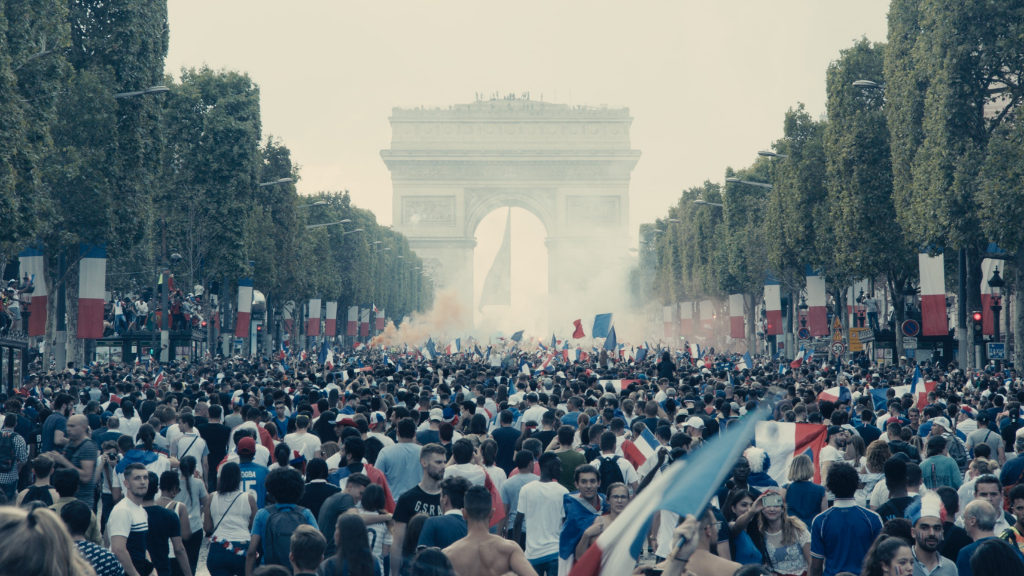Les Misérables

When France won the 2018 World Cup, it lived no longer under a state of emergency. Pictures of the trophy — held aloft — provided a superficial point of unity, a gesture of reconciliation between the state and the people. Celebrations across Paris gave the opportunity for an image, one with which to address domestic discontent and distrust. It remains an image. The state of emergency was replaced by new counterterrorism legislation. Threats to liberty were made permanent. The exception became the norm.
From this point, Les Misérables begins. By updating and radically altering Victor Hugo’s famous lament of decrepit French society, first-time director Ladj Ly produces a story at once timeworn and fiercely contemporary. The plea for revolution is one that echoes and re-echoes. How to remake the nation? It led Hugo to his lengthy, rambling treatise, which Ly reformulates into a pacey, pithy punch to the viscera. Violence escalates here over two days, not generations. Political potency is found between hours, not years.
In the deprived Parisian suburbs of Montfermeil, the Special Crimes Unit has a new recruit. Quiet and upstanding Stephane (Damien Bonnard) joins Chris (Alexis Manenti) and Gwada (Djibril Zonga) as they patrol the streets. The usual new-kid-on-the-beat tropes apply, as Stephane tries to negotiate between dubious police practices and blatant corruption. The cops make deals with local cronies, including self-aggrandising hardman The Mayor (Steve Tientcheu). Stephane watches on, aghast.
The viewer spends most of the film with the police perspective, which distorts otherwise obvious readings of goodies and baddies. We’re asked to sympathise with psychopaths while they arbitrate and exacerbate tensions among the banlieue communities. The coda suggesting that all evil is learned explains this focalisation but doesn’t excuse it. The montage of officers returning to their respective families is unfortunately risible.
Ly offers drones as the guerilla counterpoint. In the narrative, this technology is argued as a way to destabilise existing hierarchies. One kid uses it to catch police abuses. For the aesthetic, it gives birds-eye perspectives of the geometric inner city, the order of the market stalls and the lineation of the buildings. Frantic shot selection frames the claustrophobic corners that maximise damage, in which cars explode and people suffer harm. Such emphasis on geography seems intended to reduce agency.
Agency is thwarted elsewhere. In one scene the malevolent Chris harasses three girls on the pavement. They point out their rights. He laughs and continues to accost because he upholds the law, because he is the system of rule and order. Ly subsumes all else to this thesis: that we are the product of structures, that human nature is capricious, and that blame for societal torpor cannot be laid upon the individual. Perhaps right, but its rendering here is unpersuasive.
Joseph Owen
Les Misérables does not have a UK release date yet.
Read more reviews from our Cannes Film Festival 2019 coverage here.
For further information about the event visit the Cannes Film Festival website here.
Watch clips from Les Misérables here:
























Facebook
Twitter
Instagram
YouTube
RSS